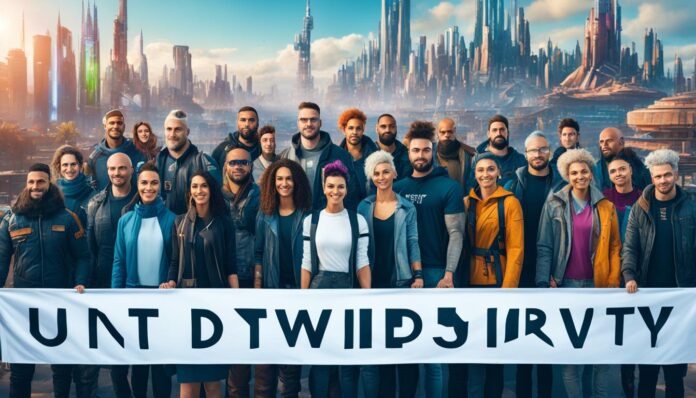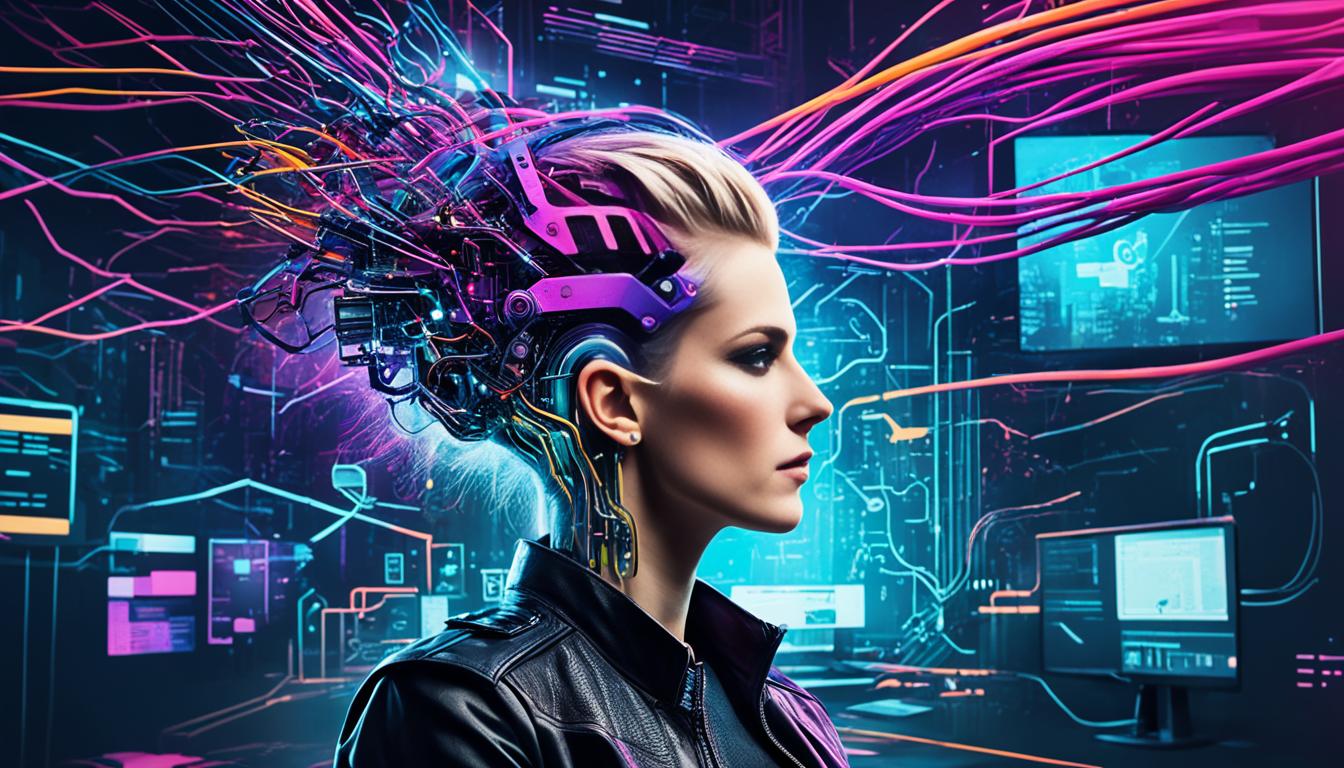
Diversity, equity, and inclusion (DEI) initiatives are essential for creating a modern and equitable employee experience, and younger generations are actively seeking organizations that take DEI seriously and weave it into their culture. According to McKinsey, companies with the most diverse executive teams are more likely to outperform their peers on profitability by 36%. However, while most employees believe their employer emphasizes DEI, one in five say there is no one demonstrating its importance through action, and 75% claim the current DEI programs deliver no personal benefits.
To ensure your organization is prepared for the future of workplace DEI by 2025, you’ll need to adopt a transformative definition and vision, implement strategies for achieving workplace equality, and leverage new tools and technology to foster a true sense of belonging and psychological safety for all employees.
Key Takeaways
- Embrace DEI as a catalyst for innovation and business success by embracing diverse experiences, backgrounds, and perspectives.
- Implement strategies to advance LGBT+ equality, close gaps in ethnicity and gender diversity in leadership, and embrace neurodiversity.
- Leverage new tools and technology to foster a sense of belonging, psychological safety, and trust within your hybrid workforce.
- Measure holistic DEI goals beyond representation metrics, including employee engagement, retention, and career progression.
- Continuously assess progress and guide future DEI initiatives through data-driven analytics and qualitative feedback.
Adopting a Transformative Definition and Vision of DEI
By 2025, the definition and vision of diversity, equity, and inclusion (DEI) are set to expand beyond their traditional focus on representation and equal opportunities. The future will bring a deeper emphasis on creating a sense of belonging and inclusivity for all employees, recognizing DEI as a catalyst for innovation and business success.
Expanding the Focus Beyond Representation
While organizations have made strides in improving diversity in leadership and representation, the next phase of DEI will go beyond these metrics. The future will demand a more holistic approach that fosters an inclusive culture where all employees, regardless of their background or identity, feel valued and empowered to contribute their unique perspectives and experiences.
Embracing DEI as a Catalyst for Innovation
Savvy organizations will recognize that diversity and inclusion are not just moral imperatives but strategic advantages. By embracing diverse experiences, backgrounds, and perspectives, companies will unlock new avenues for innovation, problem-solving, and employee experience enhancements that drive business success.
Creating a Sense of Belonging for All Employees
The future of DEI will prioritize creating a profound sense of belonging for all employees. This shift will require organizations to go beyond surface-level representation and focus on cultivating an environment where everyone feels accepted, respected, and able to thrive. Fostering psychological safety and trust will be crucial in this journey towards a truly inclusive culture.
Implementing Strategies for Achieving Workplace Equality
As we look towards the next two years, we anticipate significant progress in LGBT+ equality at work. HR departments must proactively embrace and support the LGBT+ community by fostering an inclusive environment, implementing inclusive policies, and providing diversity training to eliminate bias and discrimination. Collaborations with external LGBT+ organizations and the establishment of employee resource groups can further enhance efforts towards equality.
Closing Gaps in Ethnicity and Gender Diversity in Leadership
By 2025, we will witness substantial changes in the gaps related to ethnicity and gender diversity in leadership roles. HR executives should focus on creating equitable pathways for underrepresented groups to advance into leadership positions. Mentorship programs, targeted recruitment strategies, and addressing bias in promotion and succession processes are key steps to prepare for this transformation.
Embracing Neurodiversity and Providing Accommodations
In the next two years, organizations will increasingly embrace neurodiversity and recognize the unique strengths of individuals with neurological differences. HR executives can implement strategies such as targeted recruitment initiatives, workplace accommodations, and neurodiversity training for managers and teams. Building an inclusive culture that values all employees’ contributions, regardless of neurological differences, will be crucial.

How can I ensure diversity and inclusion in my organization by 2025?
Fostering a Sense of Belonging and Psychological Safety
By 2025, HR professionals will have access to new tools that foster a true sense of belonging, psychological safety, and trust within the workforce. Over the next two years, hybrid working models will become the norm. HR must ensure diversity, equity, and inclusion (DEI) remains a priority in this new environment. Clear guidelines for remote work, equitable access to resources, fostering virtual collaboration, and addressing challenges related to virtual communication and team dynamics are crucial. Inclusive virtual leadership training for managers will be essential.
Leveraging New Tools and Technology
Advanced analytics to identify and address inequities, AI-powered platforms for bias-free recruitment, and virtual reality training programs for empathy and awareness will play a crucial role. Leveraging technology will enable data-driven decision-making and targeted interventions to support a diverse and inclusive work environment.
Measuring Holistic DEI Goals and Progress
In 2025, DEI goals will evolve beyond representation metrics. Organizations will adopt holistic measures, including employee engagement, retention rates, and career progression for underrepresented groups. Data-driven analytics and qualitative feedback will assess progress and guide future DEI initiatives.
Conclusion
Preparing for the future of workplace diversity, equity, and inclusion (DEI) requires foresight, proactive planning, and unwavering commitment. HR executives play a pivotal role in shaping the future of organizations, fostering inclusivity, and creating equitable opportunities for all. By embracing evolving definitions and visions of DEI, leveraging new strategies and tools, and continuously measuring progress, organizations can create a more diverse, equitable, and inclusive workplace that benefits individuals and drives business success.
As you approach 2025, it’s crucial to strive for a future where every employee feels valued, respected, and empowered to contribute their unique perspectives and talents. This requires a holistic approach that goes beyond surface-level representation and focuses on cultivating a deep sense of belonging and psychological safety for all. By harnessing the power of technology, data-driven analysis, and a commitment to continuous improvement, you can transform your organization into a thriving, inclusive environment that unlocks the full potential of your diverse workforce.
Remember, the journey towards a truly inclusive workplace is an ongoing process, but the rewards are immeasurable. By embracing this challenge with creativity, empathy, and a steadfast dedication to equity, you can position your organization as a trailblazer in the new era of DEI, setting the stage for a future where every employee can thrive and contribute to the organization’s success.
FAQ
What is the importance of diversity, equity, and inclusion (DEI) initiatives in the workplace?
DEI initiatives are essential to creating a modern and equitable employee experience, and younger generations are more actively seeking to work with organizations who take DEI seriously and build it into their culture. According to McKinsey, companies with the most diverse executive teams are more likely to outperform peers on profitability by 36%. However, although most employees believe their employer puts an emphasis on DEI, one in five say there is no one demonstrating its importance through action in the business, while 75% of employees claim that the current DEI programs in place at their organization deliver no personal benefits.
How will the definition and vision of DEI evolve by 2025?
By 2025, the definition and vision of DEI are set to expand. While the focus has traditionally been on representation and equal opportunities, the future will bring a deeper emphasis on creating a sense of belonging and inclusivity for all employees. Organizations will recognize DEI as a catalyst for innovation and business success, embracing diverse experiences, backgrounds, and perspectives to drive positive change.
What strategies can organizations implement to achieve workplace equality?
Over the next two years, we anticipate significant progress in LGBT+ equality at work. HR departments must proactively embrace and support the LGBT+ community by fostering an inclusive environment, implementing inclusive policies, and providing training to eliminate bias and discrimination. Collaborations with external LGBT+ organizations and the establishment of employee resource groups can further enhance efforts towards equality. By 2025, we will witness substantial changes in the gaps related to ethnicity and gender diversity in leadership roles. HR executives should focus on creating equitable pathways for underrepresented groups to advance into leadership positions. Mentorship programs, targeted recruitment strategies, and addressing bias in promotion and succession processes are key steps to prepare for this transformation. In the next two years, organizations will increasingly embrace neurodiversity and recognize the unique strengths of individuals with neurological differences. HR executives can implement strategies such as targeted recruitment initiatives, workplace accommodations, and neurodiversity training for managers and teams. Building an inclusive culture that values all employees’ contributions, regardless of neurological differences, will be crucial.
How can organizations foster a sense of belonging and leverage new tools to support diversity and inclusion?
By 2025, HR professionals will have access to new tools that foster a true sense of belonging, psychological safety, and trust within the workforce. Over the next two years, hybrid working models will become the norm. HR must ensure DEI remains a priority in this new environment. Clear guidelines for remote work, equitable access to resources, fostering virtual collaboration, and addressing challenges related to virtual communication and team dynamics are crucial. Inclusive virtual leadership training for managers will be essential. Advanced analytics to identify and address inequities, AI-powered platforms for bias-free recruitment, and virtual reality training programs for empathy and awareness will play a crucial role. Leveraging technology will enable data-driven decision-making and targeted interventions to support a diverse and inclusive work environment.
How will DEI goals and progress be measured in the future?
In 2025, DEI goals will evolve beyond representation metrics. Organizations will adopt holistic measures, including employee engagement, retention rates, and career progression for underrepresented groups. Data-driven analytics and qualitative feedback will assess progress and guide future DEI initiatives.
